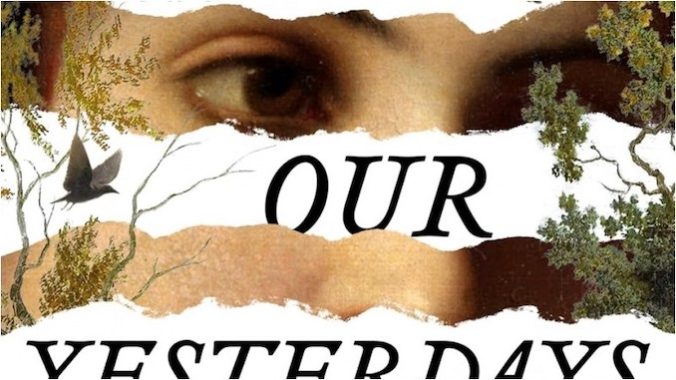All Our Yesterdays: An Emotionally Distant Exploration of a Key Lingering Question From Shakespeare’s Macbeth

Publishing has always been fascinated by retellings and the idea of looking at familiar stories through new or more complicated lenses. The rise of the feminist retelling in recent years has been especially welcome, stories explicitly aimed at reevaluating and reassessing some of Western literature’s most famous and foundational tales by putting the oft-ignored and frequently villainized women at their centers.
The popularity of Greek mythological retellings in recent years (thanks, Madeline Miller!) means we’ve seen stories featuring infamous female characters ranging from Clytemnestra and Medea to Medusa, but if 2024 is any indication, it looks as though William Shakespeare’s women are about to get their turn in the spotlight. Joel H. Morris’s All Our Yesterdays is one of several recent retellings of Macbeth hitting shelves—Ava Reid’s Lady Macbeth arrives in August, and Isabelle Schuler’s Queen Hereafter was published last October—all of which wrestle with the story behind the Bard’s most famous female character.
Morris’s version sets itself apart because it is not just the story of Lady Macbeth, but also her son, the mysterious absent child that literary critics and English majors have speculated about for years but who doesn’t appear in Shakespeare’s original text. Told via alternating chapters in two perspectives—known only as ”The Lady” and “The Boy”—the tale follows the future Lady Macbeth’s youth in the early 11th century, as she is married off to the brutal Mormaer of Moray at 15 and encounters a mysterious woman (in the forest, as these things so often happen) who prophecies that she will one day be queen.
The alternating perspectives allow us to see the pair’s difficult home life, as the Boy is frequently mocked and beaten for being too womanish and emotional and the Lady does her best to teach him to be a man strong enough to survive in a world that looks down upon those it deems as too weak or feminine. The dynamic between the two characters is fascinating, offering us a glimpse of a side of Lady Macbeth that’s almost totally absent from Shakespeare, hinting that within it is the key to the version of the woman we will one day know, whose cold and more masculine behavior are here argued to have its roots in the loss of her child to prophecy, despite spending the better part of a decade doing all she can to ensure the prediction does not come to pass.
-

-

-

-

-

-

-

-

-

-

-

-

-

-

-

-

-

-

-

-

-

-

-

-

-

-

-

-

-

-

-

-

-

-

-

-

-

-

-

-








































